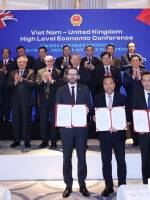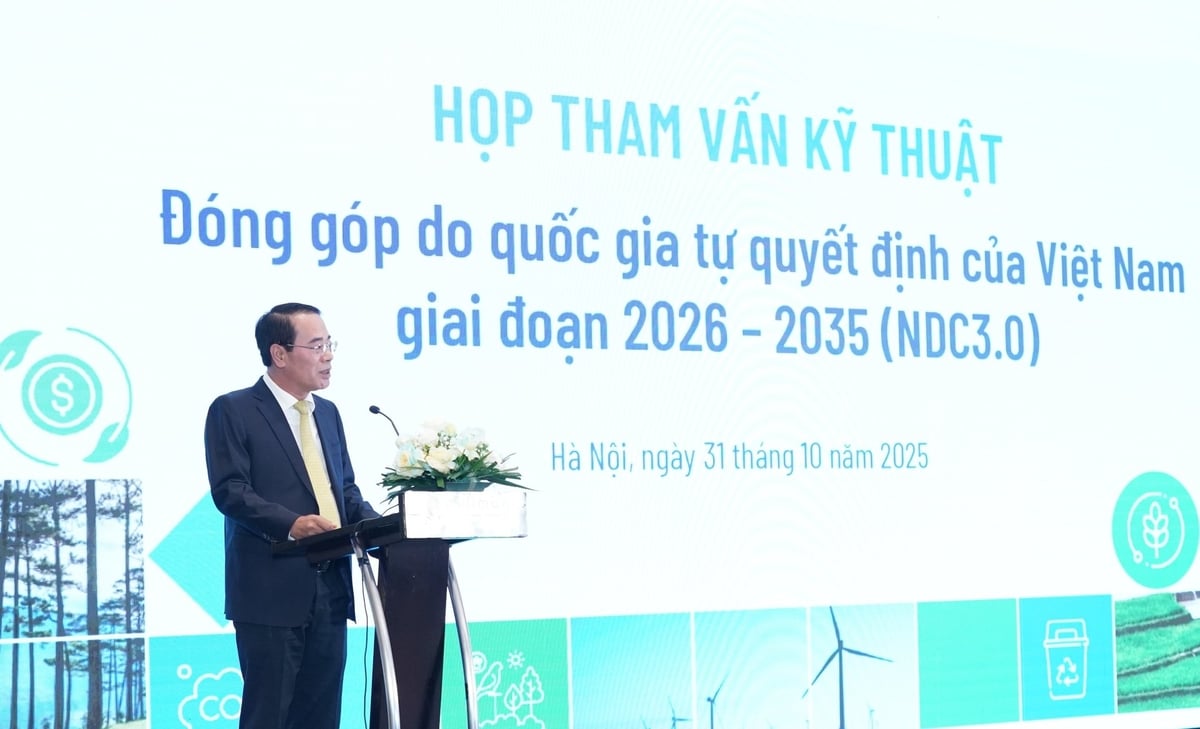
On October 31 in Hanoi, the Ministry of Agriculture and Environment (MAE), in collaboration with the United Nations Development Programme (UNDP) and the German Agency for International Cooperation (GIZ), held a Technical Consultation Meeting on the Development of Viet Nam’s Nationally Determined Contribution (NDC) 3.0 for the 2026-2035 period.
The NDC serves as a cornerstone of the Paris Agreement on Climate Change, reflecting countries’s contributions to limiting the rise in global temperature and moving toward net-zero emissions. As a developing country that began industrialization just over three decades ago and is heavily affected by climate change, Viet Nam has consistently demonstrated responsibility and proactivity in fulfilling its international commitments despite resource constraints.
Viet Nam developed and submitted its Intended Nationally Determined Contribution (INDC) in 2015 and updated and submitted its NDC in 2020 and 2022. Thereby reflecting Viet Nam’s efforts and contributions in reducing greenhouse gas emissions, enhancing carbon sequestration, and adapting to climate change.
Viet Nam’s NDC 3.0 focuses on measures that fully reflect the country’s climate change response needs for the 2026-2035 period. Particular attention is given to the foundational aspects of sustainable development, including co-benefits between adaptation and mitigation, addressing loss and damage, and social equity.
The development of NDC 3.0 is carried out under the direction of the Prime Minister, led by the MAE, with the active participation of ministries, experts, and scientists, and through broad consultations with organizations, individuals, the business community, and affected groups.
According to Mr. Tang The Cuong, Director General of the Department of Climate Change, “Since the world adopted the Paris Agreement, significant progress has been made in the global response to climate change. However, current global efforts remain insufficient to maintain the 1.5°C target. The world must continue to advance the implementation of the Paris Agreement, with national climate actions through NDCs playing a crucial role in mitigating the adverse impacts of the climate crisis.”
The development of the NDC 3.0 draft is being carried out in accordance with the provisions of the United Nations Framework Convention on Climate Change (UNFCCC) and Paris Agreement and in line with Viet Nam’s national circumstances. The draft updates the latest strategies and plans on climate change response, energy security, and socio-economic development. NDC 3.0 will also reflect Viet Nam’s highest level of commitment, thereby contributing to the global effort in response to climate change.
“In the context of the global climate change response still facing numerous challenges, particularly in supporting resources for developing countries, the development of NDC 3.0 must be calculated concretely and systematically to ensure feasibility in implementation,” emphasized Mr. Cuong.
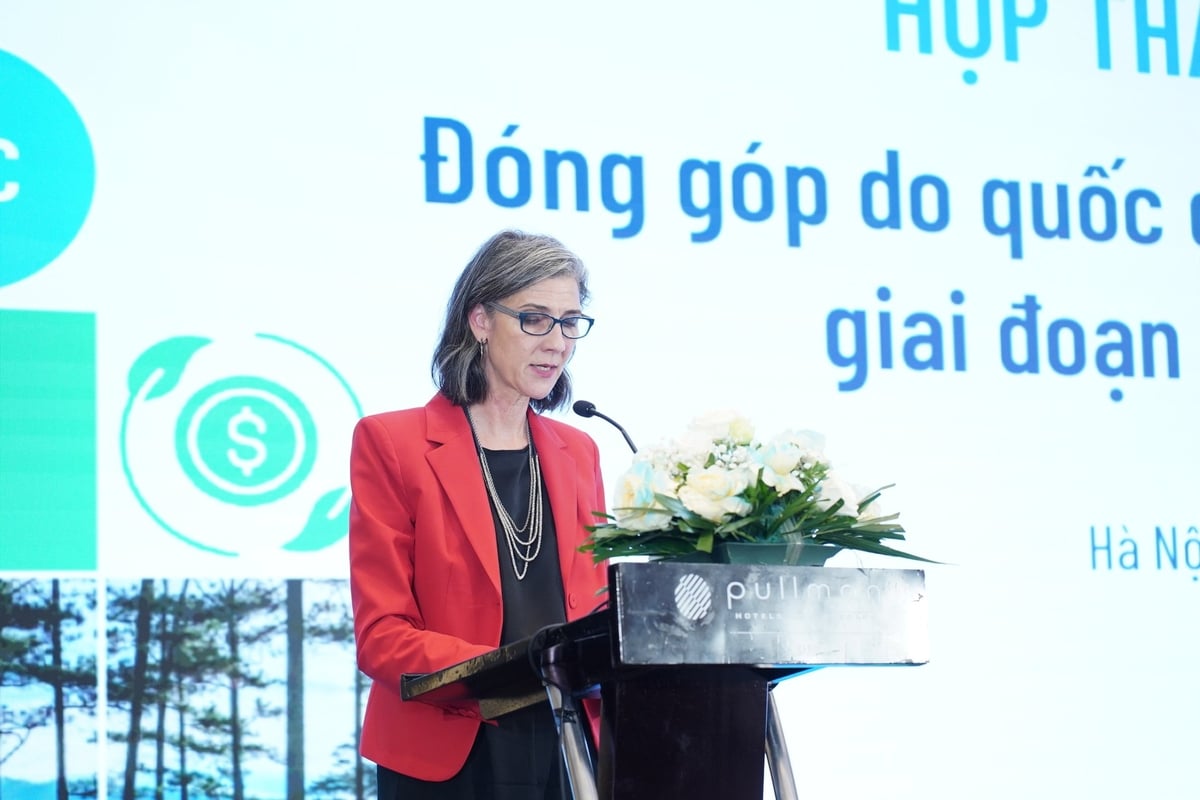
According to Ms. Ramla Khalidi, UNDP Resident Representative in Viet Nam, Viet Nam’s administrative reforms in recent times are creating an environment to link economic transformation with green growth, climate resilience, and social equity. At the same time, aligning climate finance with financial flows for investment in socio-economic development will help mobilize resources at the necessary scale, creating substantive impact changes for the country.
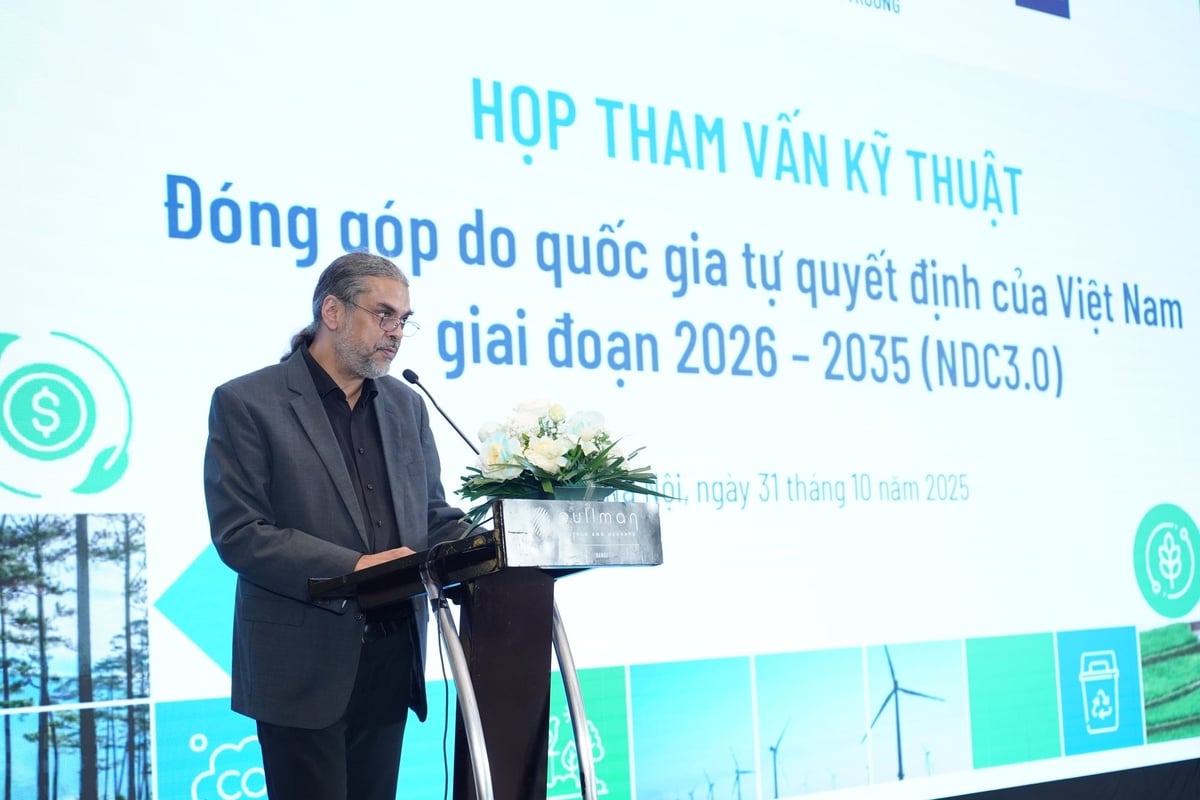
According to Mr. Oemar Idoe, Deputy Country Director of GIZ, the feedback and recommendations gathered aim to jointly develop an NDC that is not only ambitious enough to meet the urgent demands of climate change but also practical, equitable, and capable of driving economic transformation for the benefit of all Vietnamese people.
During the meeting, representatives from ministries, international organizations, the business community, and other stakeholders shared their insights and feedback on the 2022 NDC implementation review, focusing on greenhouse gas emission reduction and climate change adaptation, as well as lessons learned to serve the development of NDC 3.0.
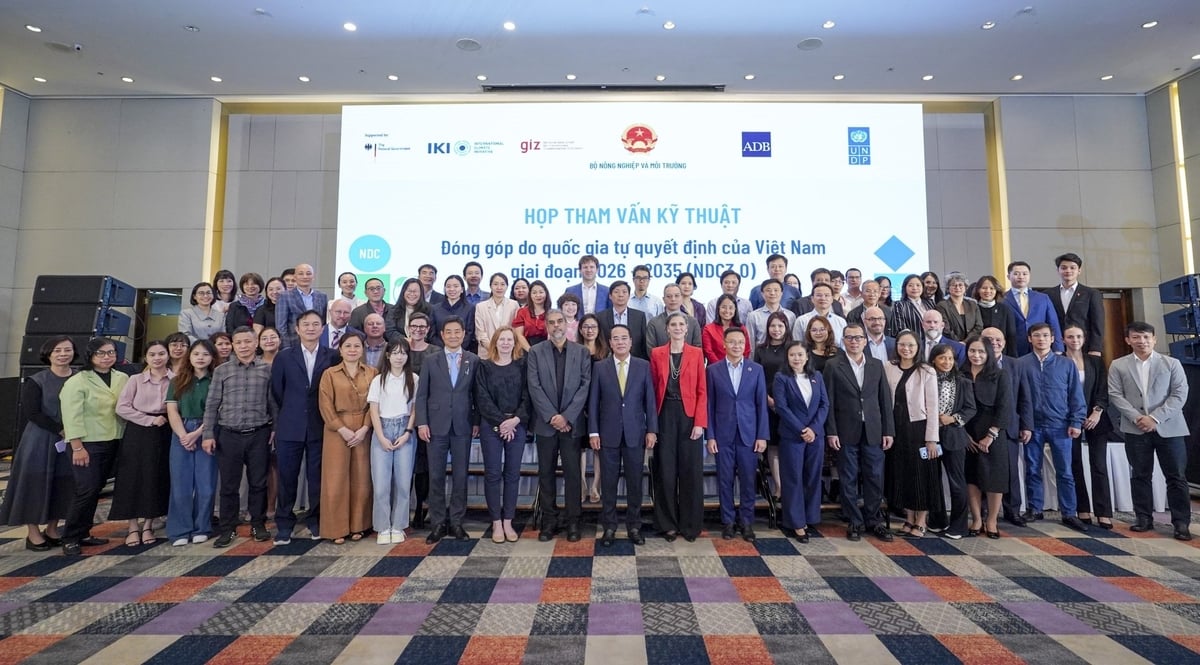
Assumptions for constructing the Business-as-Usual (BAU) emission scenario have also been discussed to evaluate the feasibility and relevance of greenhouse gas emission mitigation targets and measures across key sectors, including energy, agriculture, land use and forestry (LULUCF), waste, and industrial processes and product use (IPPU). The proposed measures must be feasible and cost-effective, allowing for synchronous and flexible implementation in line with the country’s development context and international support. They should be harmonized and deliver co-benefits for climate change adaptation and socio-economic development and be particularly aligned with national and sectoral development plans for the 2021-2030 and 2026-2030 periods, aiming toward the long-term objectives of the National Strategy on Climate Change by 2050.
Climate change adaptation activities and the monitoring and evaluation of adaptation targets were also among the key topics of concern. The approach to adaptation and cross-sectoral issues in NDC 3.0 must ensure close and multidimensional linkages with the National Adaptation Plan (NAP). NAP serves as a foundation for defining adaptation goals and measures in NDC, while NDC, in turn, must fully and consistently reflect the objectives, tasks, strategic solutions, and financial needs outlined in NAP.
NDC’s adaptation components may be part of the NAP, aiming toward quantifiable and time-bound adaptation goals. NDC 3.0 also aims to establish a specific set of indicators to monitor and evaluate the progress of adaptation target implementation. By identifying priority actions and establishing evaluation criteria with specific, measurable targets, Viet Nam aims to assess its climate adaptation performance.
Another key focus is the discussion of financial mobilization and implementation methods for NDC 3.0 in the coming period. National resources for unconditional contributions include the state budget, public and private foreign loans, and investments from domestic and foreign enterprises, as well as contributions and investments from citizens.
The conditional contributions will be implemented through a combination of national resources and international support, including grants, concessional components of loans, financial resources, technology, and capacity-building assistance under bilateral and multilateral cooperation mechanisms, particularly within the framework of the United Nations Framework Convention on Climate Change and the Paris Agreement.


